
The unsaid exposes the nerves of private desires, fears, and secrets behind actions—those so trivial they become relatable in their absurdity. Apathy is resistance. Repression is a survival method. In a world run on chaos, restraint is currency and mystery is the raison d'être. And in art, the ability to animate these dualities with an invisible hand is a signature of greatness.
Cate Blanchett channels this nuance in the roles she steps into, and Ottessa Moshfegh picks it apart in her prose. The actor and author share a profound curiosity about what makes us tick—our fears and desires and how we seek to subsume (or pacify) them. In conversation for the first time, it is only natural that the two bond over a mutual fascination with shame, individualism, and power—idiosyncrasies that drive the plot, literally and existentially.
Both onstage and onscreen, Blanchett probes why we do what we do. She has played characters whose agency comes as they reject societal expectations: a forbidden affair between two women in Carol (2015) and a nonlinear, multilead biography of Bob Dylan in I’m Not There (2007). She embodies women who take their narratives into their own hands—the conductor doomed by ambition in Tár (2022), an English monarch’s Faustian pact with power in Elizabeth (1998), and now a secret agent suspected of betrayal in Black Bag (2025). In the latter, the actor, as Kathryn St. Jean, is always one step ahead; the slightest
look in her eyes can either unlock a clue or induce more confusion from her husband, who is obsessed both personally and professionally with knowing her every move. In doing so, Blanchett is a magician, stretching fiction so thin that we can see ourselves through it.

Similarly, Moshfegh holds the ego to a microscope, its porousness illuminated. Between action and intention, she reveals a trick mirror, only to whisk it away into the story. To occupy another’s mind is a Byzantine pursuit, but Moshfegh deals in this literary bramble. Unreliable narrators reveal internal struggles, contradictions, and vulnerabilities so quotidian that by the time they sneak up on you and teeter the plot, the surprise comes naturally. In Eileen (2015), this unfolds in a pivotal moment of rupture by a self-loathing young woman working at a boys’ prison. In My Year of Rest and Relaxation (2018), a refusal to act bloats until it bursts with repercussions when a young gallery sitter initiates a drug-induced hibernation, in the spirit of Herman Melville’s 1853 Bartleby, the Scrivener. And what of the forces behind these characters, those who hold the strings and then free them into the world? How do they fare after the curtain has closed and the manuscript has gone to print? As Blanchett and Moshfegh reveal, an expansion takes place, then a release. But there’s always residue.
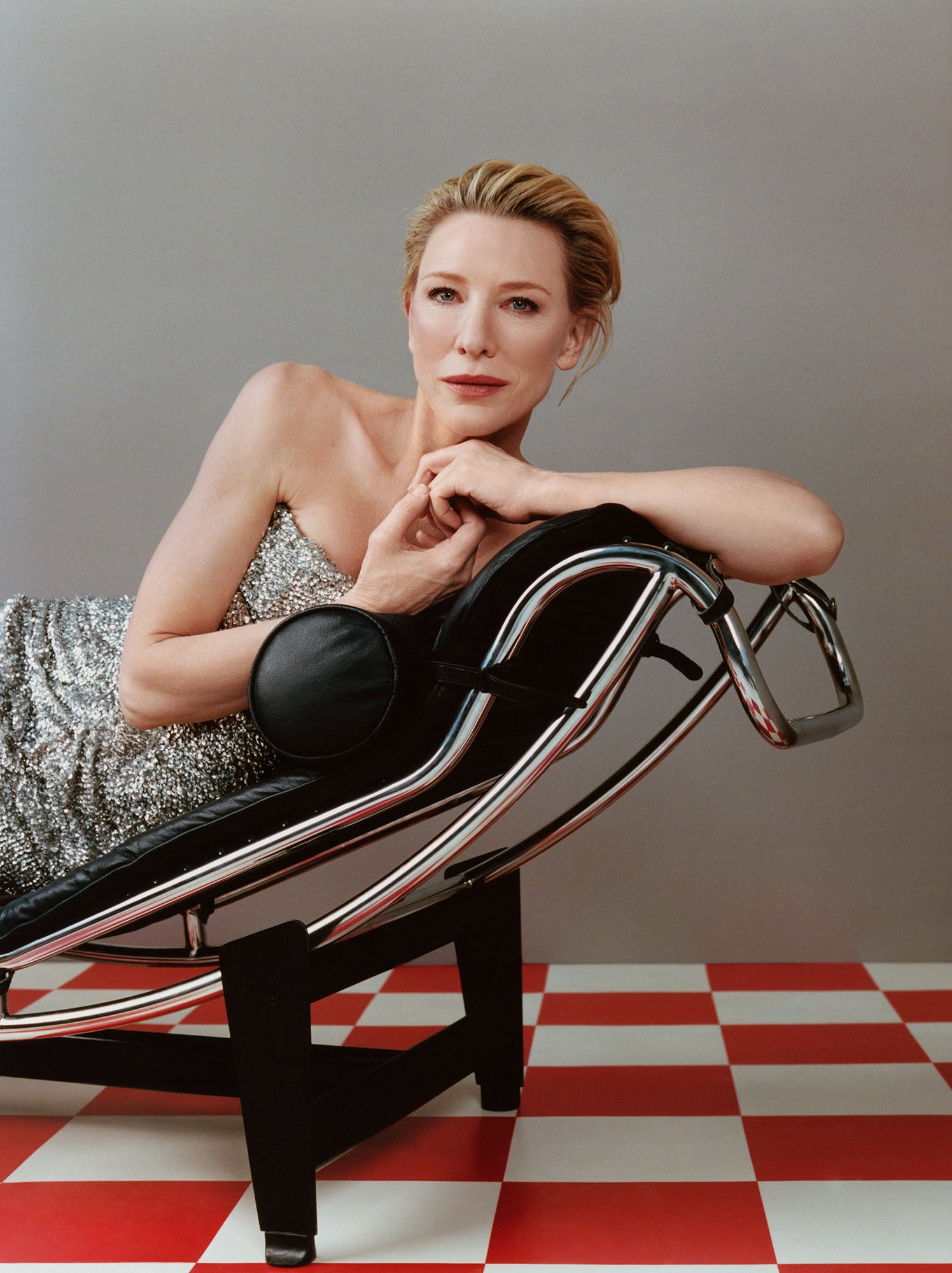
Ottessa Moshfegh: I loved Black Bag. It is such a delicious film. On the simplest level, the competency of the characters is so thrilling right now because we're just surrounded by so much incompetency.
Cate Blanchett: I always look at the disjunction between what a character says and what they do: where they move, who they choose to speak to, what words they use, what objects they pick up, or people they discard. It's as much what they don't say as what they say. A script is like a template—even if the entire thing is improvised, there will be markers in the sand. Certain events need to happen or certain people come into the story or exit. But you can only have the end in mind as if it were a dream. When you're setting out to write something, how much do you allow the flow of the moment to take you in a direction away from your structure?

OM: When I first understand that I must write something, I hear it before it is actually words; it'll be a weird sound, and I'll be like, I think the word is...
CB: As if it's a conversation heard underwater?
OM: Exactly. Sometimes it's even more abstract than a sound, it's like a gesture or the movement of air or a feeling. I'm obsessed with control and when I can lose control and let writing happen. This is a very interior process, but I've learned at this point when not to be a perfectionist and when to zone out. I can observe and allow things to happen naturally, and then at the same time coordinate with my instinct to go back, do it again, say it another way.

CB: Part of genuinely being in control is having the confidence that you can navigate change. That comes through experience. In my profession you need to maintain an intense curiosity that is sometimes motivated by fear and doubt. You need to go in there as if it were the first day of school and discover things that you'd be surprised by. You have to humble yourself to the task. I think part of it is accepting that we're in a constant process of change, and
our attempts to fix things or make things permanent will never work. You have to face loss and failure and fuckups. What I love about theater is that it doesn't mean anything at all until there's an audience. You have to allow them in, but they're not controlling the evening. You're inviting them to your table, and you know what you're going to serve them.
OM: With a script, you know what you're about to say next. How do you hold your future lines in your mind while not being there yet?

CB: I'm rehearsing a play at the moment [The Seagull], so this is very relevant. In the theater, you need to know the script incredibly well, like your partner's body where every time you make love, you have to discover them anew. You have to be profoundly present, and you can't focus on yourself. You have to focus on the space and the other actors’ lines, because often there will be things that they say that are triggers for you to move, for you to retreat. For you to say something or want to say something or not say something. It's often the quietest person in the room who can be most compelling. Often if I'm having problems with the line in theater, I realize I'm not standing in the right place. It's funny, I’m very spatially attuned. But I do have a terrible memory.
OM: Can you remember what you did yesterday?
CB: Yes, because it was only yesterday, but ask me next week... Do you?
OM: My memory is awful, but my memories of being young are untouched. I live in California now, where every day looks the same, so the days run into each other. I'll look up and wonder what I’ve been doing.

CB: I feel like I'm full of randomness and contradictions and inconsistencies at the moment, which I don't really want to be accountable for. When you're working on something, you end up seeing things through the lens of the material that you're working on, which is a gift in many ways. But it can also mean that I can feel a bit absent to people. Everything that you've experienced during the day doesn't disappear. It's still swirling around you. I love that onstage you can be profoundly present but also have an alert sense of the other layers of time and reality. I am wildly open because I have to allow everything in and everything out. It's an extraordinary feeling. Are you like that when you sit down to write? Are there certain things that you like—ideas or situations or environments—that you set up for yourself? Are they different to each story?
OM: It's like getting a phone call at the beginning. Then eventually when I understand what's being asked of me, I come up with a discipline around what I'm doing. Sometimes it's very controlled, and sometimes it's more fluid. The book that I'm working on is based in a place kind of like Brighton
in England. I didn't know that it was Brighton nor had I been to Brighton when I started writing the book. Then when I went, I could identify it as the place. Now I've been back three times, and each time I go I need to have a flat on the third or fourth floor with a view of the sea. That's the only requirement, and it's because the character lives there so I have to be there. I believe in putting yourself in the right situation. I don't like to be controlled at all. As a writer, I am in competition with an idea of the end result, because I don't want anyone to ever question what I've done. At the end of a book, I really have to shut myself down because now my agent and my editor are going to say this and that about it. That surrender feels very complete and permanent every time. When I go back with notes from my publisher, I feel like I'm a secretary. I'm not the same person that wrote the book.

CB: Does that require time?
OM: A lot of it is time. Distance from the thing really helps going back to a draft. Suddenly I can see things more clearly. There's a million ways that I rewrite and fine-tune things. I also think that it's like making a pact with the writing gods. When I wrote my first novel, Eileen [2015], I was very, very superstitious. I couldn't even tell anyone I was writing a novel except for my therapist. I thought if I told anyone I would let some of the pressure out of the system and then it wouldn't be mine anymore.
CB: There is so much interiority in that book. I think that that is one of the many reasons why so many people love your work, myself included. It’s an act of communion with other people: You allow people to realize they're not alone. Pretending that we don't think about what we do, or we don't fantasize about these things, is deeply human. I imagine that the act of sharing some of those things is kind of antithetical to the state that the character is in. You have to allow them to stew internally, which may not be entirely pleasant. But, once it's on the page, has it somehow left you? Is there a residue? Does it ever cease to be yours? There’s the sense that you give it over to your readership.
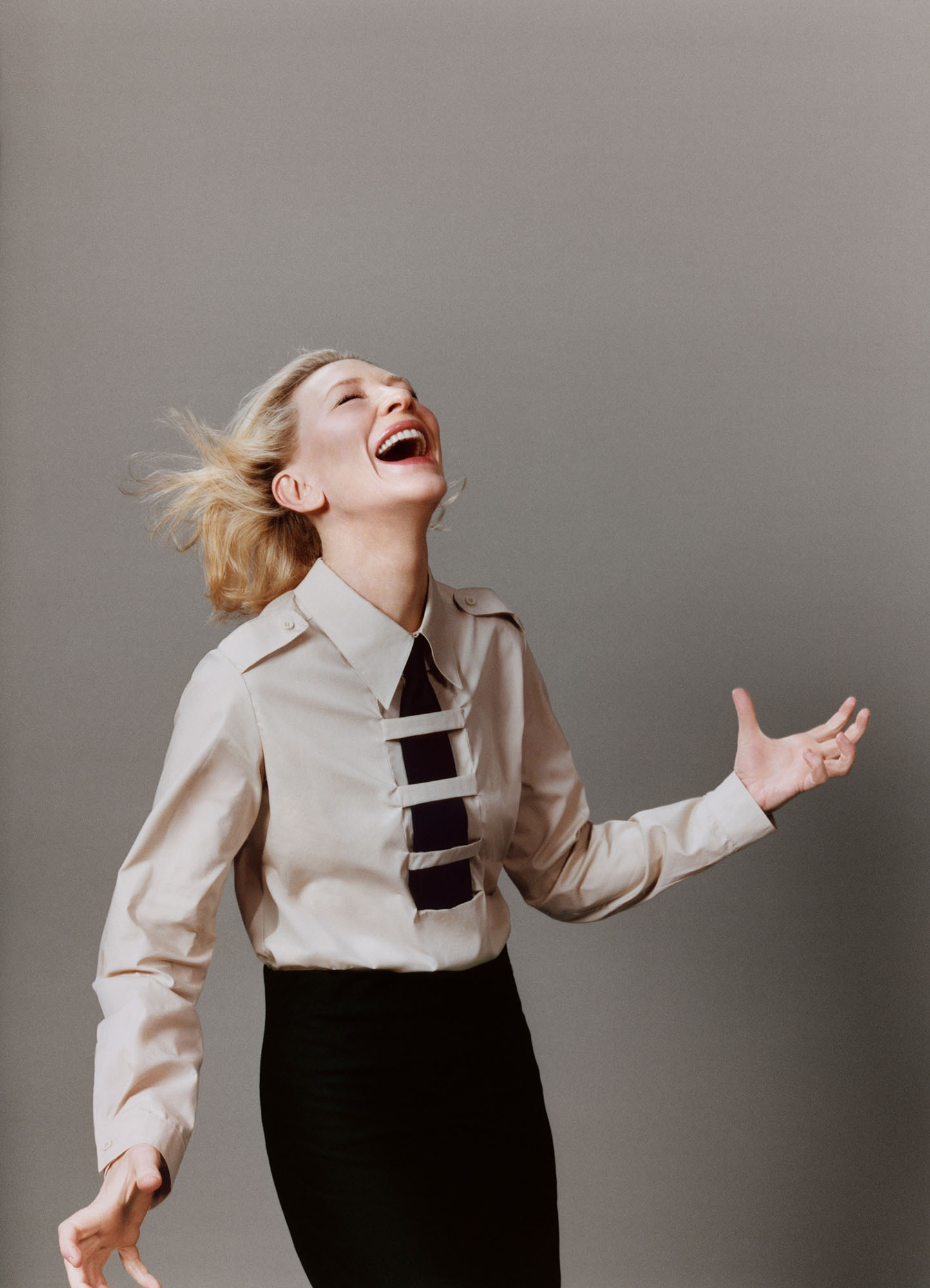
OM: You have to, because you can't be there reading over people's shoulders. You have no choice. Something I do control is that I absolutely do not read reviews of my work because I know that the moment it matters to me is the moment that I lose some of my own power to be free—now I have this other person's voice in my head. Have you ever wanted to direct?
CB: I was going to ask you the same question. I loved what you did with Carey [Mulligan for Prada’s Spring/Summer 2025 campaign]. Listening to you speak about characters just now, I thought, Oh my God, you need to be on set. It is so insightful.
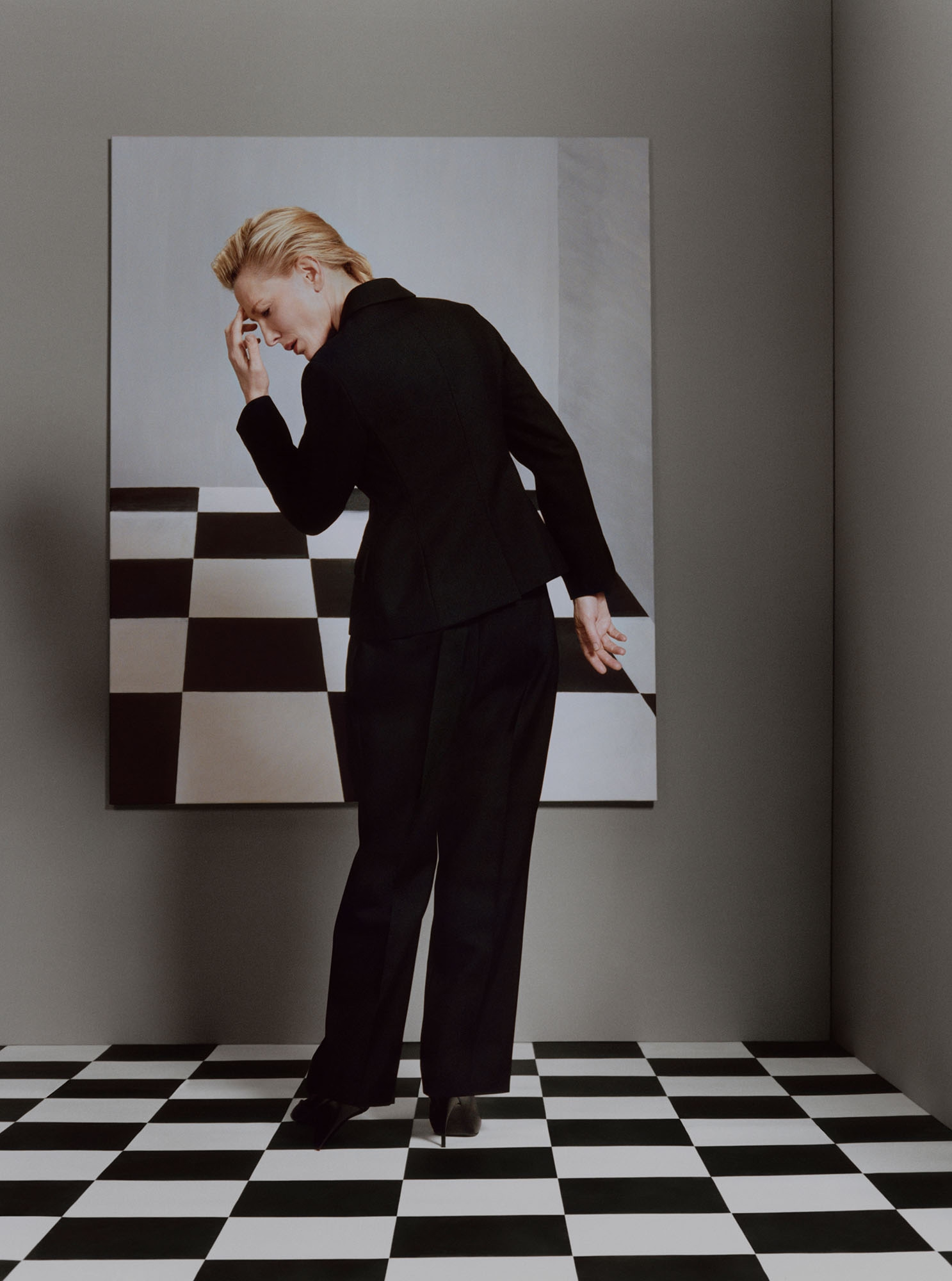

OM: Not yet. I don’t feel quite ready. I studied film and have been obsessed with film since I was a kid, but I've never actually been on a set. So I don't know what it looks like to direct.
CB: Not for Eileen [2023]?
OM: No, because we shot it during Covid, and there could only be this many people in the room. But I would want to direct when it is the right time, with the right project. What about you?

CB: When I was running a theater company with my partner, I loved all of the production meetings, all of the preparatory visuals, the relationship with the set designer, costume designer, and all the production team. I felt such a profound relief on opening night to go into the auditorium instead of onstage. As an actor, you see the story from the margins. I have this ability to defend my character, look at the story from their perspective but also be invested in the whole. I love being part of the whole conversation, setting up a series of propositions, questions for actors. I would die a happy woman in the rehearsal room. Well, I'm never truly happy dying; I love life. I’m not transformed by the set of circumstances that I’m investigating or inhabiting, but I am expanded by them. For the time that you're working on something, it becomes your frame of reference, and, in a way, a control test. And then sometimes that lingers longer.
OM: My relationship to my characters or to my narrator is never as profound as the way that I feel about my relationship to my authorship and the purpose of my writing. And that's something I'm constantly interrogating, because you have to or else it gets stale and you go nowhere. I love writing novels partly because I can identify when I'm really in it: It's as if I'm in The Matrix. I will be like Oh, I think I need to write a book about a ceramist who loses one of her hands. Then the next day the wheel of my car falls off, and then all these other metaphorical things happen with not being able to do something. Or I meet someone with one hand. It's like, this is my religion because my life starts teaching me how to write the book. It's miraculous, and I really trust it.
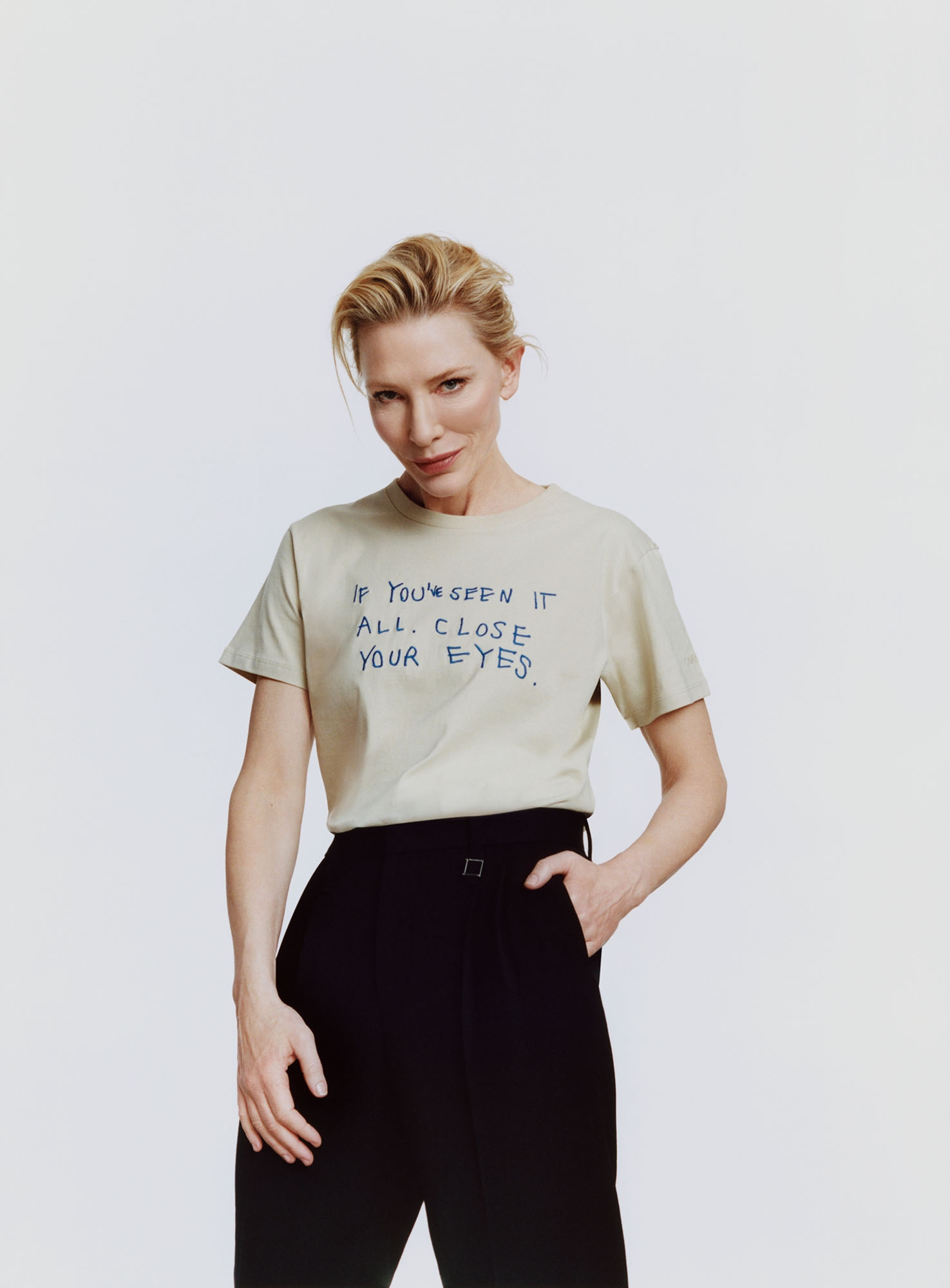
CB: Whether there were all those people with one hand walking around making ceramics and you just didn't notice them until then...
OM: Exactly. It's all about your perspective and what you notice. I had this one boyfriend when I first moved to Los Angeles, and we were at a red light in Hollywood and he said, "Oh, that's really sad." I was like, "What is it?" He's like, "The prostitute right there." Suddenly, I looked around and realized, Oh my God, these people are all prostitutes. And he said, "Yeah, once you see them, you can never unsee them." Now I can see them. When I'm imagining my characters, I think about what they would be feeling versus what they might be saying, versus what they might be telling themselves.

CB: I'm fascinated by shame. I remember years ago I was playing Hedda Gabler [in a staging of the play Hedda Gabler by Henrik Ibsen], and I thought, How do you tell this story when shame is no longer a currency in the world? I often think about shame as an opening to possibility for something new and perhaps more evolved to occur. It can be a profound motivator for change.
OM: I agree. Shame is what separates us from monsters.


CB: There's been moments in your books where I've just thought, Thank you so much for not trivializing this or that, but giving it a twist, unashamedly. There are not a lot of forums for constructive conversation, and I think disagreement is healthy.
OM: People will go to great lengths to avoid shame or admit that they are ashamed in front of someone. And the theatrics of that denial and dancing around it are what's fascinating to me. I see men struggling with shame more than I do women right now. There's a lot of finger-pointing going on, and a lot of fuming.
CB: But shaming people is pretty fruitless; you have to feel it yourself. It's quite personal, isn't it? It's quite interior. It's something between you and whatever you call your god.










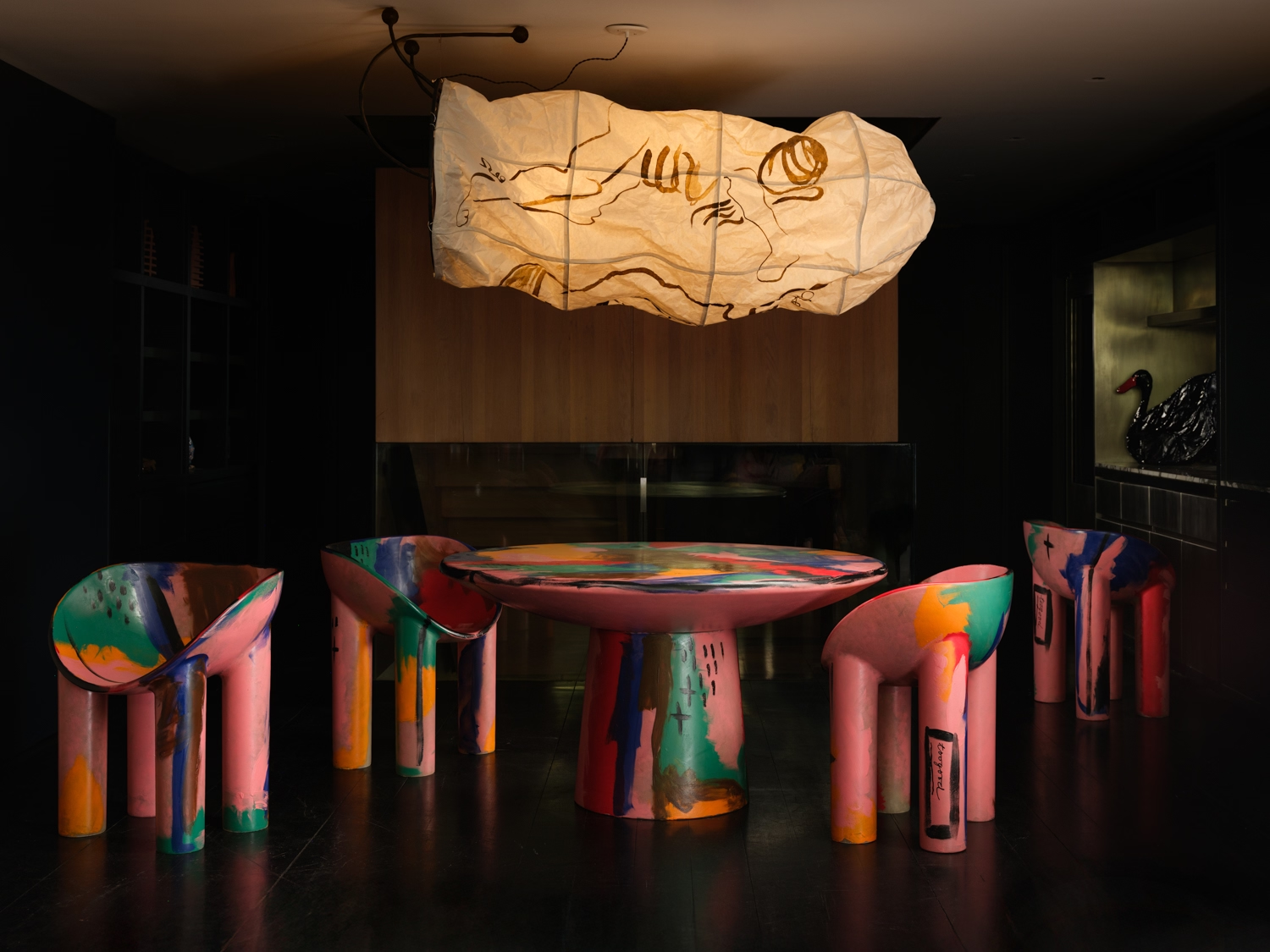
.avif)








.avif)


_result_result.avif)



.avif)

_result_result.avif)

_result_result.avif)
.avif)

_result_result.avif)


_result_result.avif)


.avif)




.webp)

.avif)

















%20(1).avif)
.avif)




.avif)
















.avif)


.avif)





















.jpeg)

.avif)

_11%20x%2014%20inches%20(2).jpg)







.avif)

.jpg)

%20(1).jpg)
.avif)
.jpg)

.jpg)
.webp)


.webp)



.webp)


.webp)


.avif)











.avif)
.avif)














.avif)

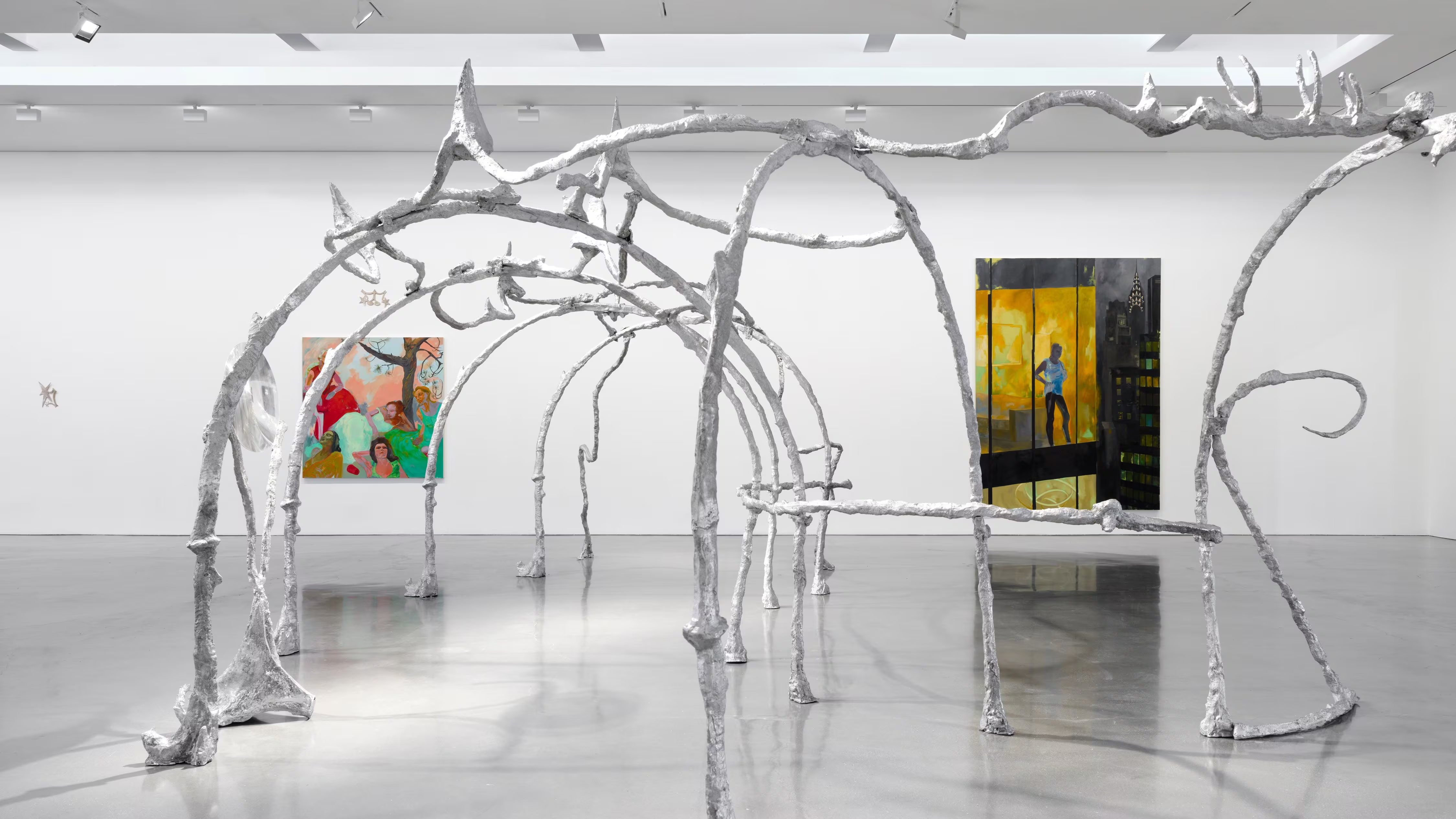







.avif)



.avif)







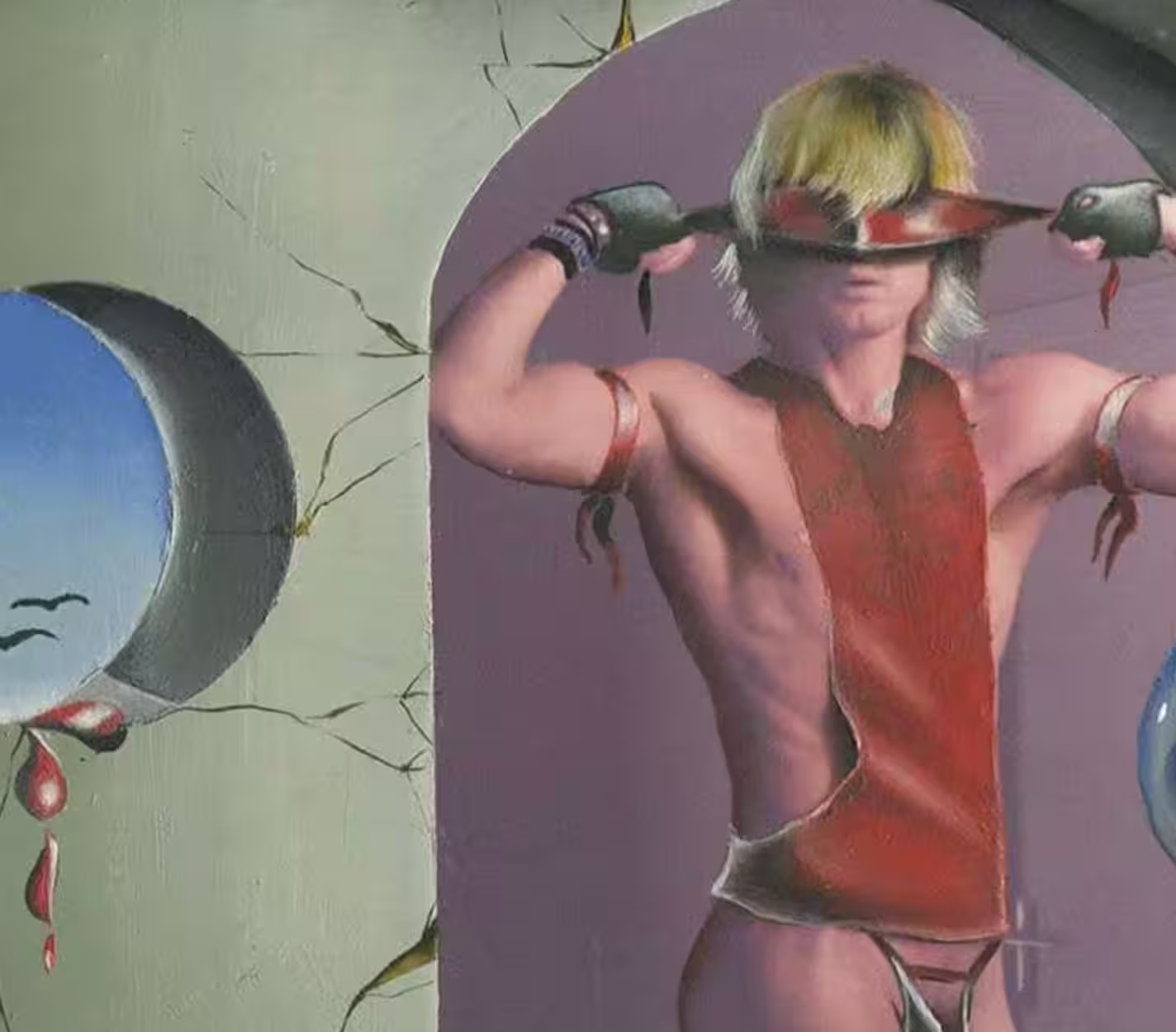












-min_result.avif)









.avif)







3_result.avif)
_result.avif)






_result.avif)




.avif)




.avif)













_result.avif)


.avif)

.avif)








.avif)

.avif)










.avif)



.avif)


_result_result.avif)
















-min_result.avif)






.avif)
.jpg)
















_result.avif)

.avif)


.avif)







.avif)





.avif)

_result.avif)



.avif)













.avif)









.avif)


.avif)














.avif)




.avif)








.avif)

.avif)

.avif)



.avif)


.avif)




.avif)

.avif)

.avif)
.avif)
%20(1).avif)
.jpg)

%20(1).avif)








.avif)
.avif)

.avif)






.avif)


.avif)


















.avif)
.avif)
